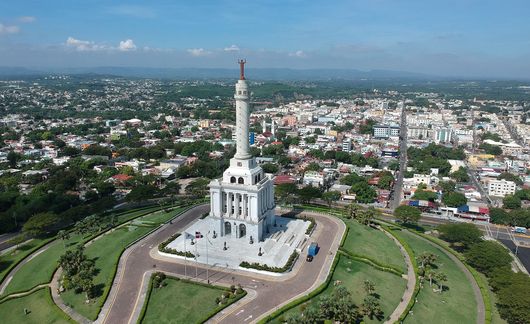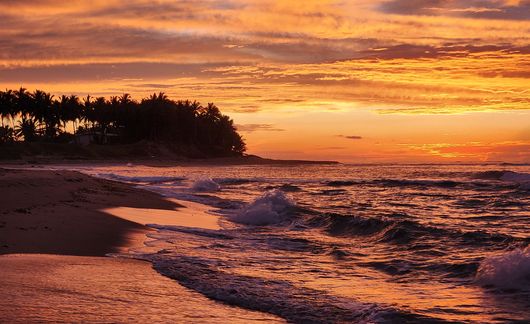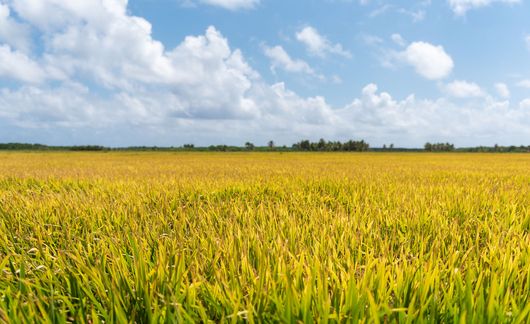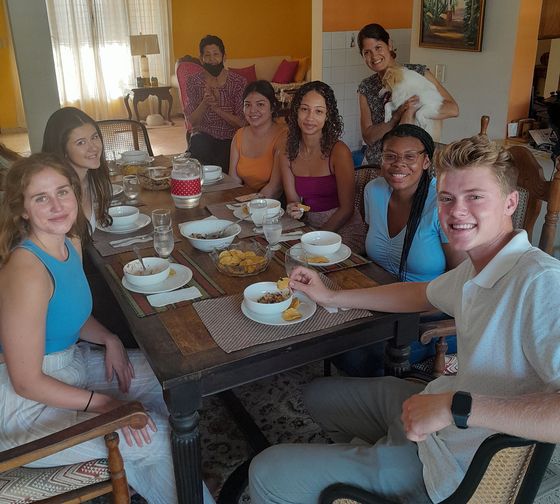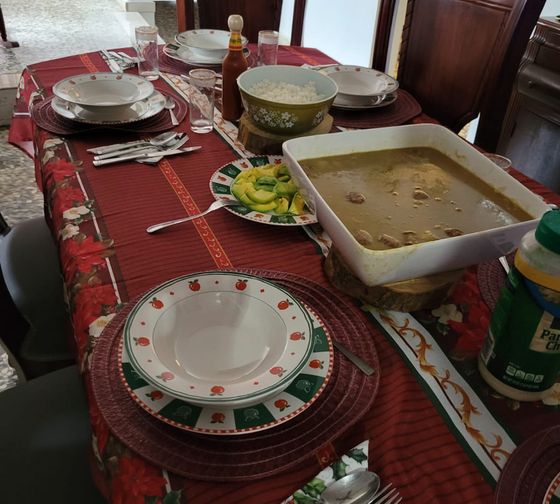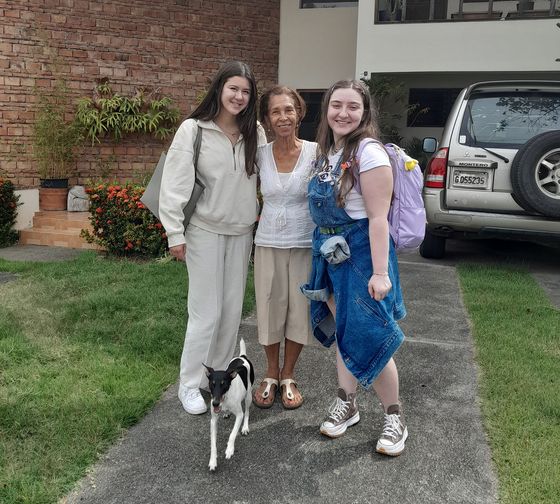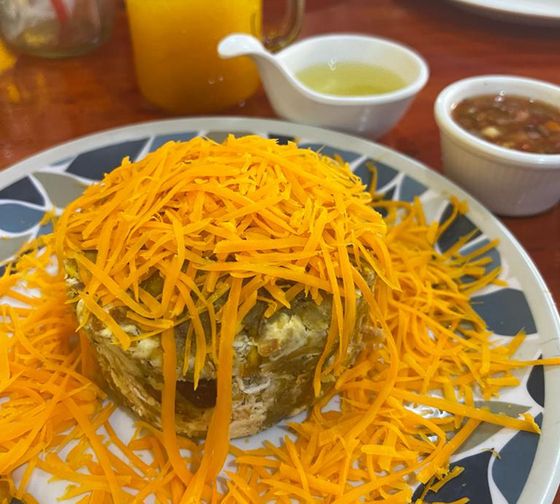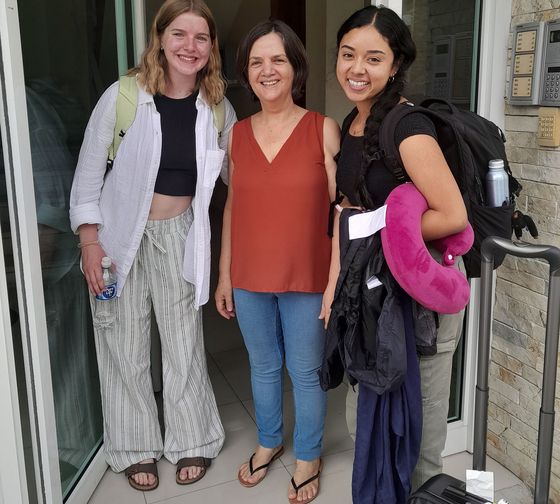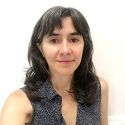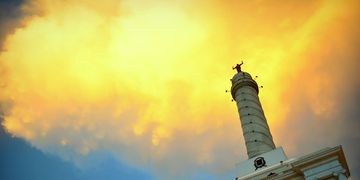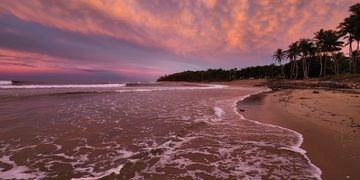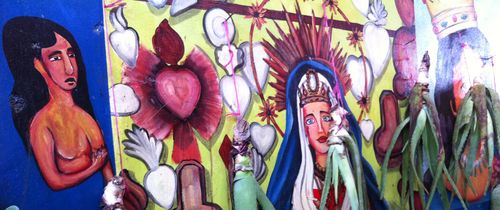
Summer Community Public Health
Unique Experiences
Get to know
the hospitality of a Dominican family, the candidness of Dominican communities, and the service-driven work of healthcare professionals while enhancing your Spanish skills in a supportive environment
Explore
diverse approaches to public and private healthcare systems and tackle real-world challenges in creating impactful public health solutions that enhance community well-being
Expand your knowledge
by assessing the unique needs of a semi-urban community in the Dominican Republic and actively contribute to designing effective interventions aimed at addressing those challenges and improving community health outcomes
1503
founding of the oldest hospital of Americas
1,000
miles of tropical paradisiac coastline
10,161 FT
hike length to the highest peak of the Caribbean, Pico Duarte
Your Destination
Find yourself surrounded by mountains in the lush valley of the Cibao region in the center of the island of Hispaniola. Here lies Santiago de los Caballeros, the second largest city in the Dominican Republic, which puts you steps away from places of historical, cultural, and ecological interest – not to mention a less than two-hour ride to the Atlantic Coast with crystal-clear warm water and white sand. Santiago is the commercial and cultural center of the fertile Cibao Valley region, housing the León Jimenez cultural center and the commercial street of Calle del Sol.
Founded in 1495 by 30 caballeros from Columbus’ early expeditions, Santiago boasts a fascinating history, exciting museums, and enriching cultural experiences, including music, art, and festivals. This growing, modern city is home to many Dominican specialties, such as cigars, rum, chocolate, coffee, amber, and larimar, and a population of more than 1 million. Despite its sprawling size, Santiago retains many small-town features. Traditional merchants call out their wares in a musical chant, and street vendors balance large baskets of fruit and vegetables on their heads.
Close to the Atlantic Ocean to the north and the Caribbean Sea to the south, Santiago offers endless sports options, including baseball, basketball, soccer, swimming, surfing, and kitesurfing, along with ample cultural and artistic entertainment and recreation. Here you can dance to the contagious rhythm of merengue and bachata and enjoy the best Dominican gastronomy. And of course, enjoy all the entertainment a baseball fan can ask for.
Come and enjoy a vibrant and growing city in the Caribbean with everything the tropics offer, from some of the most beautiful beaches in the world to the highest peak of the Caribbean.
The Culture
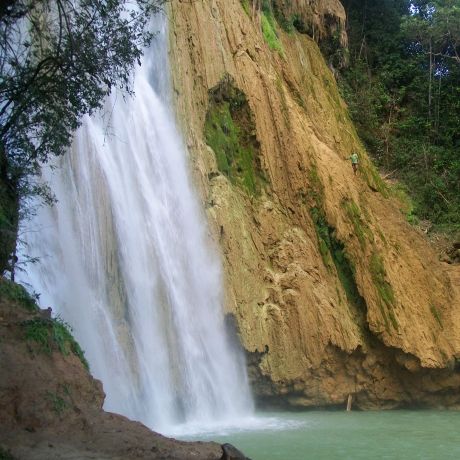
Excursions & Activities
While participating in the Community Public Health Santiago program, you’ll have a chance to:
- Embark on an unforgettable day trip from Santiago to the vibrant Colonial Zone of Santo Domingo, where you will explore Columbus' first settlement and visit the site of the first hospital in the Americas
- Experience an unforgettable evening in the enchanting garden of the Monumento a los Héroes de la Restauración, Santiago de los Caballeros' iconic monument
- Immerse yourself in the vibrant culture of Santiago by exploring its stunning murals, discovering art and history at Centro León, shopping for unique souvenirs along the iconic Calle del Sol, and enjoying the city's rich musical offerings, including Son de Keka on Sundays
- Step into a nature lover's paradise with activities like glamping in the heart of lush landscapes, surrounded by fresh rivers and a rich variety of plants
- Walk around the historic city of Puerto Plata before heading down for a swim in the turquoise waters and white sand on one of the best beaches along the Atlantic Ocean.
Please note: Activities are based on past programs and subject to change at CIEE's discretion to adapt to local circumstances and participant feedback. Our goal when arranging activities is always to enhance your experience.
Program Blogs
Cars and Conchos: Public Transport in Santiago
Santiago, Dominican Republic, has a multitude of options for public transport. From taxis, Gua Guas (large public buses) and Uber, getting around the city is not overly difficult. What’s unique... keep reading
The Reason I'm Here
Vulnerability Fear. Lust. Grief. Contempt. Boredom. These are just some of the few emotions that we, humans, can feel. But out of the diverse gamut of fleeting experiences, I think... keep reading
Housing & Meals
Housing
CIEE Santiago de los Caballeros offers various housing options to ensure you're comfortable in your home away from home. From homestays to independent studios, we will strive for your accommodation preferences to be met. . Additionally, all housing options are located in neighborhoods with convenient access to the CIEE Santiago D.R. study center and PUCMM campus (under 20 minutes).
- Standard Housing: Includes a single or shared room in a homestay. Homestays feature a kitchen, living room, and bathroom shared with a host family, along with weekly laundry service. Although families may be able to communicate in English, most speak only Spanish.
- Select Housing: Includes single accommodation in a studio apartment with a private kitchenette and bathroom, within a 20-minute commute to the CIEE study center and PUCMM campus. Select housing requires an additional fee.
A note: The default criterion to assign housing is first-come, first-served; however, other factors may also be considered. If we cannot accommodate your first housing choice, we'll let you know before you arrive. Non-standard housing options require an additional fee that can be found in the program Dates and Fees.
Meals
- Homestays: Include three meals per day.
- Independent Studios: Meals are not included. Estimated additional costs are noted in the “Fees & Housing” section.
Academics
Community health aims to improve the well-being of specific groups by addressing social determinants such as geographical, cultural, socioeconomic, and religious factors. It involves assessing community needs and developing educational programs to promote healthier lifestyles and find solutions to health inequalities. Community Public Health focuses on promoting, protecting, and preventing health issues at a systemic level, unlike clinical care which provides direct patient services. These professionals work to enhance overall health through education, policy development, and preventive programs, addressing environmental conditions, social determinants, and access to care. By collaborating with local leaders, organizations, and governments, they design programs that foster healthier environments and lifestyles, reducing health disparities and building resilient communities, ultimately contributing to the well-being of society as a whole.This intensive eight-week Spanish-taught program features a comprehensive approach to community and public health issues in the Dominican Republic under several social contexts. During this time, students will take classes on pre-professional healthcare issues and participate in semi-urban and semi-rural community service practices in small cohorts. As part of the Community Practicum course, they will also participate in a five-day rural stay in a community outside of the city, working alongside local health promoters and medical practitioners in an intensive health education experience.
Throughout the process of completing community need assessments, students will learn about the impact of social determinants on the health/illness process and its relation to individual and collective health. They will also propose potential strategies to act and contribute to solutions to overcome contextual problems. In addition, they will understand the health system in the Dominican Republic, including healthcare management, policies, and local health insurance. They will also explore the status of the essential public health functions (FESP) in the country, preventive medicine programs at the collective and individual levels, primary healthcare administration and services, mental health intervention strategies, among others. During the rural stay, they will hold a health fair addressing local needs around environmental and social aspects of community health.
Spanish classes will include guided learning sessions to expand Dominican-culture background knowledge and encourage friendly conversations with community members and healthcare team members, enhancing your communication skills in real-world settings.
Course Information
Summer 2025
Note: This course listing is for informational purposes only and does not constitute a contract between CIEE and any applicant, student, institution, or other party. The courses, as described, may be subject to change as a result of ongoing curricular revisions, assignment of lecturers and teaching staff, and program development. Courses may be canceled due to insufficient enrollment.
"(GI)" denotes courses that originated at CIEE's Global Institutes and that are offered at multiple CIEE sites.
Scholarships & Grants
CIEE offers scholarships and grants annually to help students like you make your study abroad dream a reality.
Students who apply to this program are eligible for the following scholarships and grants:
- Wollitzer Merit Scholarships in Area or Comparative Studies
- Ping Scholarships for Academic Excellence
- Global Access Initiative (GAIN) Grants
- McDermott Health Sciences, Nursing, and Public Health Merit Scholarships
- Stohl International Undergraduate Research Scholarships
- CIEE Gilman Go Global Grant
- MSI Grant
- CIEE STEM Scholarship
To be considered, submit the CIEE Scholarships & Grants application within your CIEE program application.
Dates & Fees
You get more for every dollar when you study abroad with CIEE, because our high-quality programs include everything from excursions to insurance. There are no hidden charges, and no disappointing surprises when you arrive.
Program |
Application Due |
Start Date |
End Date |
Fees & Housing |
|---|---|---|---|---|
| Program Summer 2025 8 weeks | Start Date | End Date | Fees & Housing $8,750 |
To help you budget, keep in mind that students are responsible for the cost of international airfare, local transportation, books and supplies, visas, and personal expenses. In addition, your college or university may charge additional fees for study abroad, or may require you to receive a transcript via CIEE's School of Record, which carries an additional fee of $500.
Program Fees
CIEE offers the most student support of any provider in its program fee, including an airport greeting, full-time leadership and support, orientation, cultural activities, local excursions, pre-departure advising, and CIEE iNext travel protection with benefits.
| Participation Confirmation | $300 * |
| Educational Costs | $7,000 ** |
| Housing | $1,250 *** |
| Insurance | $200 |
| Total Fees | $8,750 |
Optional Housing
CIEE accommodation options are detailed in the Housing section. Based on availability, Select or Select Plus Housing can be chosen during the application process for an additional fee. Housing is assigned on a first-come, first-served basis; however, other factors may also be considered.
| Select Housing Fee | $400 |
Financial Aid
CIEE offers the most grants and scholarships of any study abroad organization, including $8 million/year in travel grants, merit-based scholarships, institutional and MSI grants, and Gilman Go Global Grants.
Estimated Costs
Students are responsible and manage costs related to travel, meals, books, and personal expenses. Below are estimates for consideration.
| Meals not included in program fee | $0 † |
| International Airfare | $600 †† |
| Local Transportation | $70 ††† |
| Books & Supplies | $55 †††† |
| Visa Fees | $75 ††††† |
| Personal expenses | $170 †††††† |
| Total Costs | $970 |
*non-refundable
**direct cost of education charged uniformly to all students
***Housing fees listed are for financial aid purposes only and should not be considered a basis for calculation of refunds.
†For students in homestays, families provide all meals (breakfast, lunch and dinner). For students in apartments, you should budget approx. $290 per month for groceries if you plan on making your own meals, and more if you plan on eating out regularly.
††Average round-trip based on U.S. East Coast departure (Newark-STI)
†††Airport transfer at the end of the program & Weekly transport to Community Practicum sites (concho or uber). Participants stay within walking distance from Host University and CIEE Center. Uber transportation to move around the city is NOT being considered (3.00-3.50 USD per ride).
††††Scrubs to use in Community Practicum and minimum extra supplies.
†††††Paid upon departure at the airport.
††††††$100 emergency fund + cell phone expense + toiletries
What's Included
Tuition
Housing
Pre-departure Advising
Advising before you depart to set goals and answer questions
Optional on-site airport meet-and-greet
Orientation
Introduction to your program plus practical information about living in your host city
On-site Staff
Full-time program leadership and support in your city
Cultural and/or Co-curricular Activities
Excursions and/or Study Tours
Travel Protection
CIEE iNext travel protection
24/7 emergency on-site support
Meals
Our Staff
Lucía Agüero
Center Director
Lucía Agüero is a passionate educator and lifelong learner with over fifteen years of professional experience.
Dr. William Rey
Program Coordinator
Will graduated from the medical school at PUCMM and has gained extensive experience working within the Public Health system, collaborating with both urban and rural communities to improve healthcare access and outcomes.
Get Started
1
2
Connect With Your Campus Study Abroad Office
Share your plans and confirm you're on track to meet all required steps to go abroad.
3
Contact Us
Send us an email if you still have questions or need information about applying to this program.




